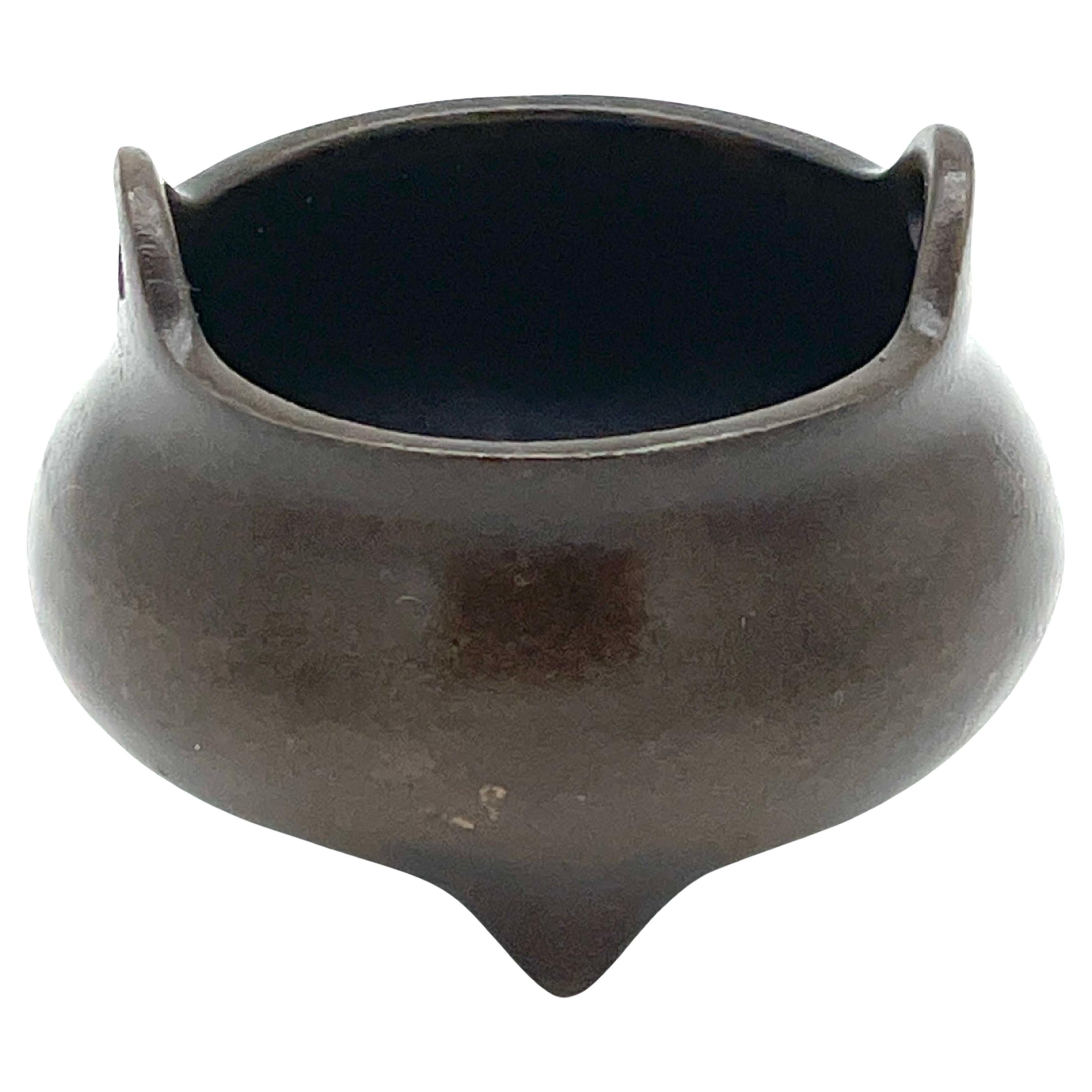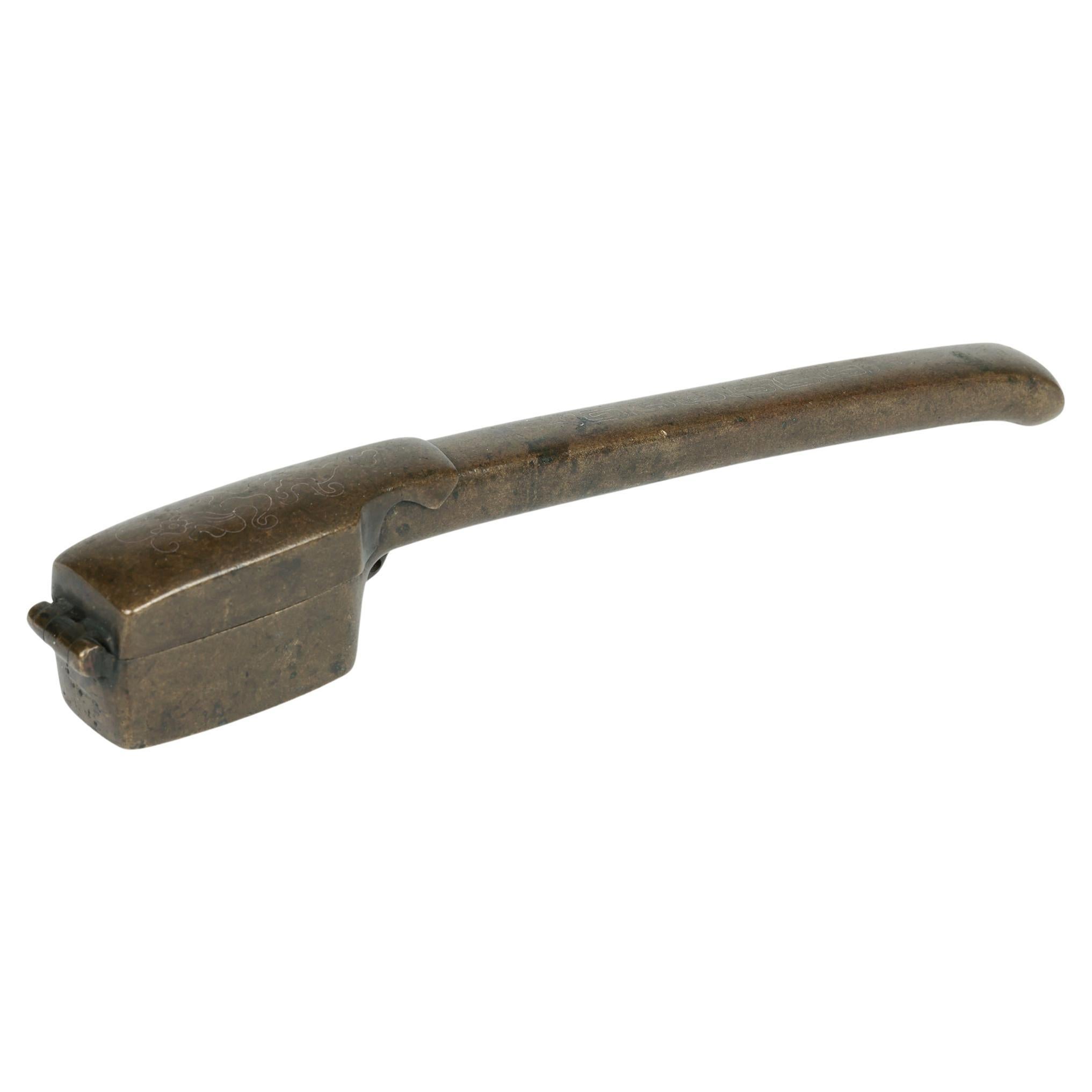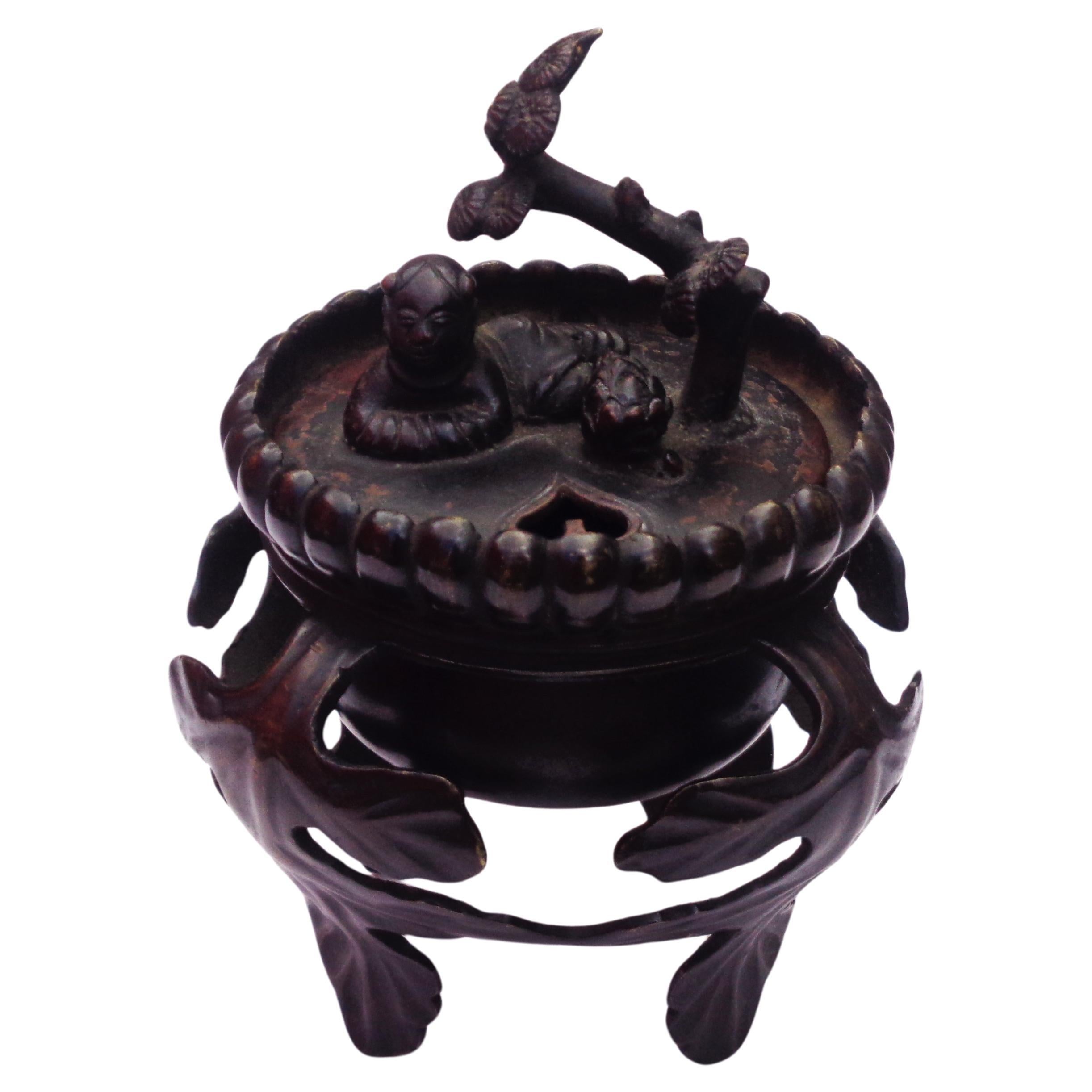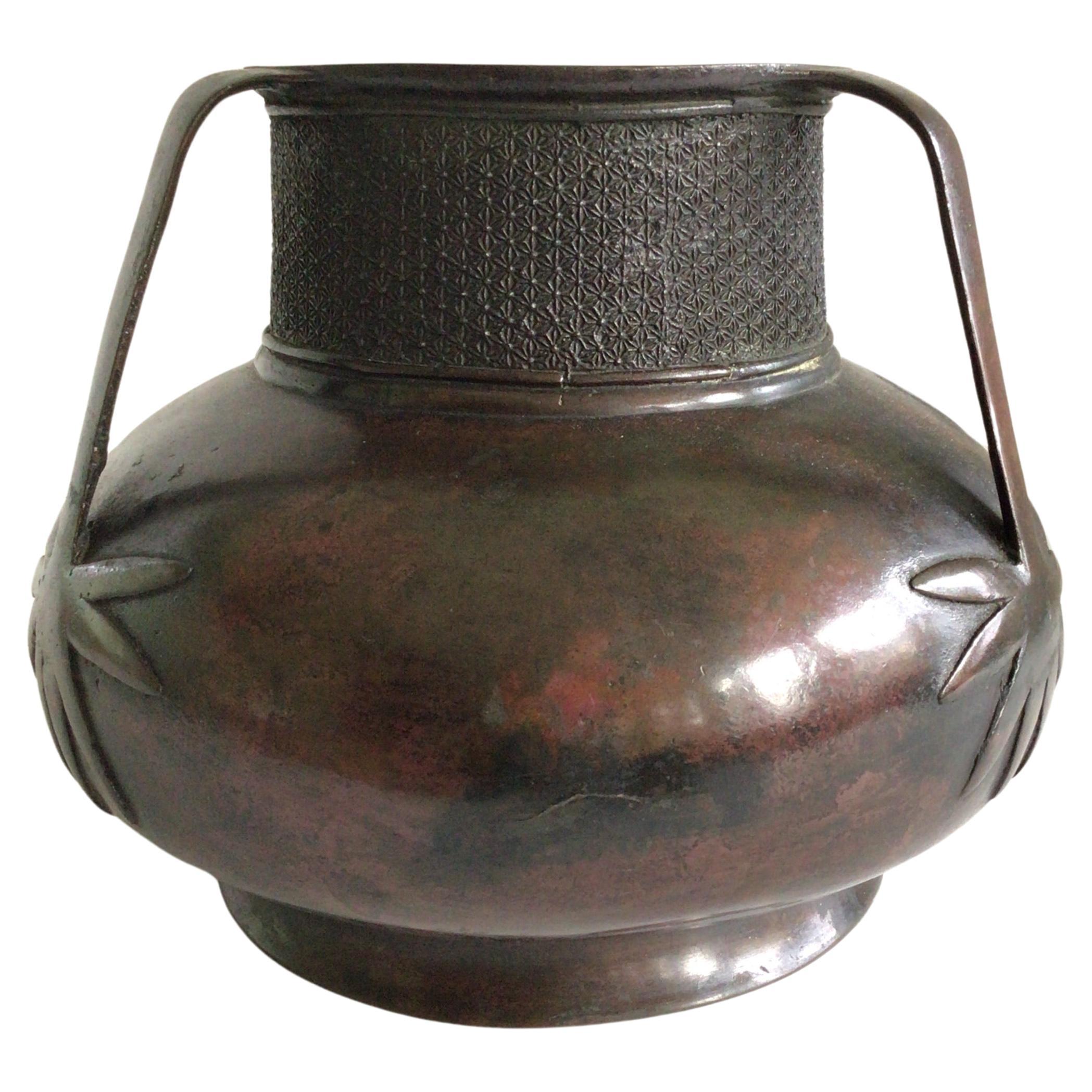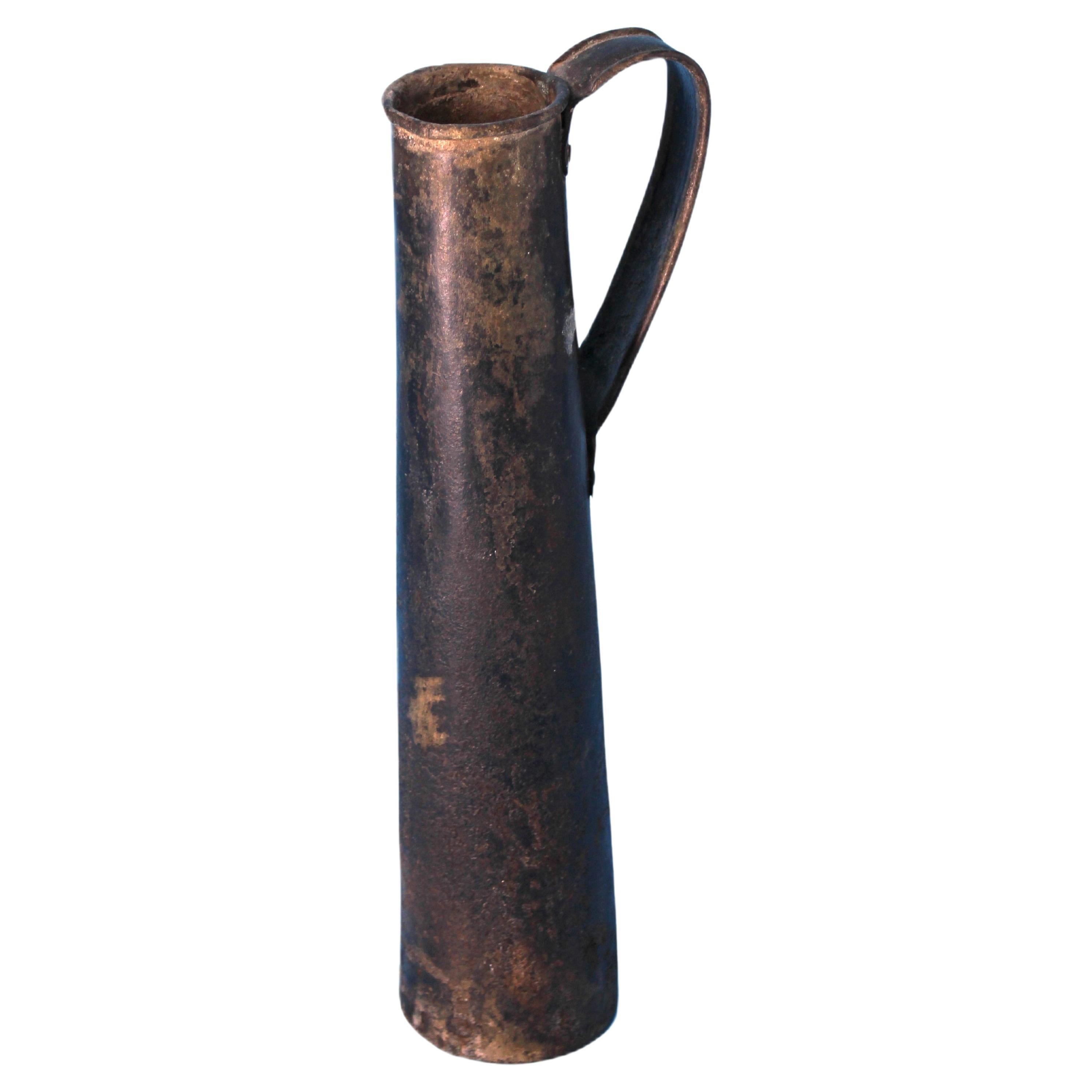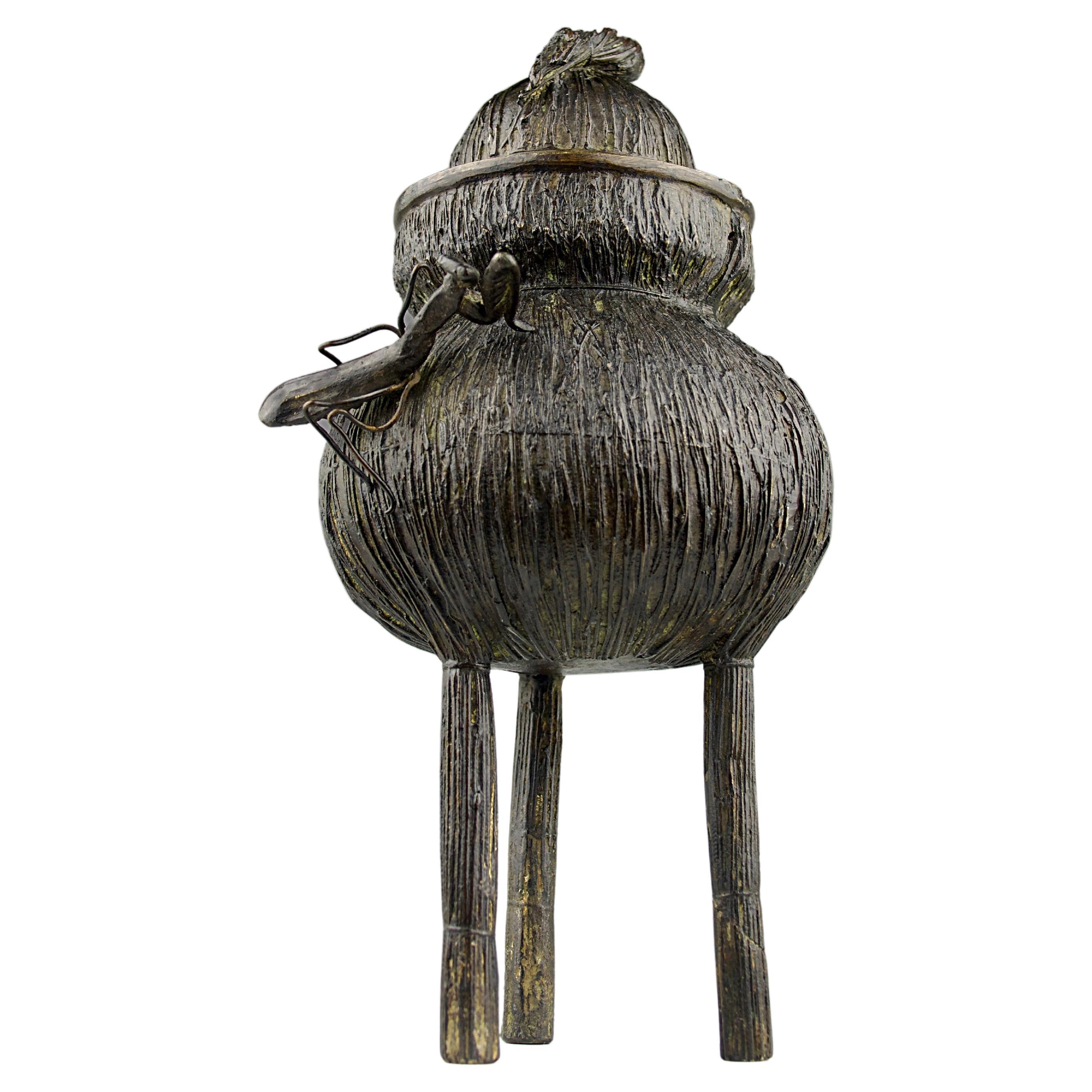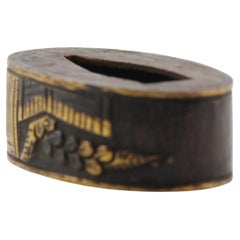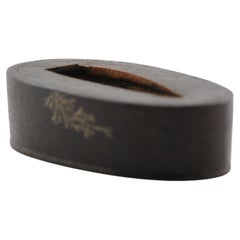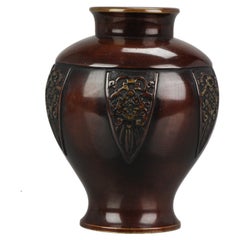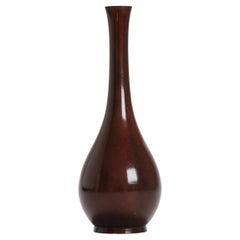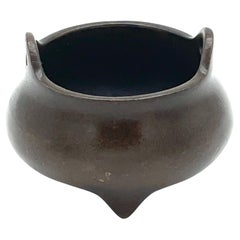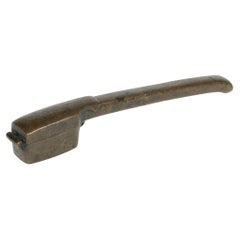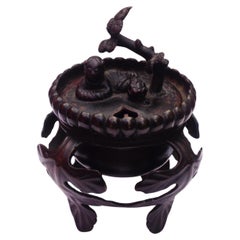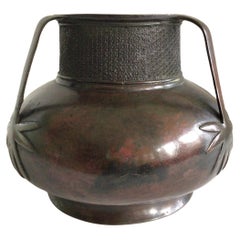Items Similar to Antique Japanese Bronze Hatate 19th C Meiji Inkpot Japan Unsigned
Want more images or videos?
Request additional images or videos from the seller
1 of 11
Antique Japanese Bronze Hatate 19th C Meiji Inkpot Japan Unsigned
$575.11
$718.8920% Off
£428.05
£535.0620% Off
€480
€60020% Off
CA$787.76
CA$984.6920% Off
A$876.16
A$1,095.2020% Off
CHF 457.50
CHF 571.8820% Off
MX$10,661.89
MX$13,327.3620% Off
NOK 5,842.99
NOK 7,303.7420% Off
SEK 5,479.70
SEK 6,849.6220% Off
DKK 3,654.07
DKK 4,567.5920% Off
Shipping
Retrieving quote...The 1stDibs Promise:
Authenticity Guarantee,
Money-Back Guarantee,
24-Hour Cancellation
About the Item
Lovely and very detailed piece. .
If someone were to bring up the topic of Japanese antiques, what images would come to your mind? Kimono? Swords? Armor? Possibly netsuke? A few might even know what an inro is. How about the yatate?
I have shown a yatate to many of my Japanese acquaintances here in Tokyo, and was surprised to discover that most did not even know what it was! Artists and calligraphers usually knew right away, though.
A yatate (pronounced yah-tah-teh) is a Japanese portable writing set. The yatate has been around since the Kamakura period (1185-1333). It contains a traditional Japanese bamboo brush and an ink pot filled with cotton or silk which holds liquid sumi ink.
Yatate literally means "arrow Stand."
The Japanese traditional way of writing is with a brush (fude) and ink (sumi). Before the invention of the yatate, whenever anyone wanted to write or draw in ink, he had to make his own ink by grinding the ink stick in water on the grinding stone (suzuri). This method has been used for many centuries, and is still being used today.
Warriors (samurai) often had to write letters and reports from the field, and so carried a small grinding stone in a small drawer at the bottom of their quiver along with the arrows.
This grinding stone became known as the "yatate no suzuri" (arrow Stand's grinding stone). Eventually it was simply called "yatate."
It was burdensome to have to pull out the grinding stone, ink stick, and water container every time one needed to write, but in those days before spill-proof containers, carrying liquid sumi ink could lead to disasters, especially on the battle field.
Then sometime during the Kamakura era (1185-1333 ) someone came up with the clever IDEA of saturating a piece of cotton or silk in liquid ink. This could be carried about in a simple container without any worry of spills.
A truly portable writing set was finally born. Now one could quickly dash off a letter by just sliding open the lid and pressing the brush into the cotton.
These new writing sets were made in the shape of a folded fan (hiogi-gata) which contained both the ink soaked cotton and brush.
Warriors continued to carry these in the quiver with the arrows, so they were also called yatate just like the grinding stones they replaced.
Condition
Overall Condition Very good condition, just some minimal age signs here and there like small scratches.180mm in length
Period
Meiji Periode (1867-1912).
- Dimensions:Height: 0.04 in (1 mm)Diameter: 0.04 in (1 mm)
- Materials and Techniques:
- Place of Origin:
- Period:
- Date of Manufacture:19th Century
- Condition:Wear consistent with age and use. Overall Condition Very good condition, just some minimal age signs here and there like small scratches.180mm in length.
- Seller Location:Amsterdam, NL
- Reference Number:1stDibs: LU4863222990482
About the Seller
5.0
Platinum Seller
Premium sellers with a 4.7+ rating and 24-hour response times
Established in 2015
1stDibs seller since 2019
264 sales on 1stDibs
Typical response time: 2 hours
- ShippingRetrieving quote...Shipping from: Amsterdam, Netherlands
- Return Policy
Authenticity Guarantee
In the unlikely event there’s an issue with an item’s authenticity, contact us within 1 year for a full refund. DetailsMoney-Back Guarantee
If your item is not as described, is damaged in transit, or does not arrive, contact us within 7 days for a full refund. Details24-Hour Cancellation
You have a 24-hour grace period in which to reconsider your purchase, with no questions asked.Vetted Professional Sellers
Our world-class sellers must adhere to strict standards for service and quality, maintaining the integrity of our listings.Price-Match Guarantee
If you find that a seller listed the same item for a lower price elsewhere, we’ll match it.Trusted Global Delivery
Our best-in-class carrier network provides specialized shipping options worldwide, including custom delivery.More From This Seller
View AllAntique Metal Japanese Fuchi for Katana with Gold decoration Edo Period
Located in Amsterdam, Noord Holland
Nicely made Fuchi. The piece is unmarked. Dating to the Edo period
Provenance: Collected in the 1920's. Thence by decent
A fuchi is a collar that is mounted at the base of the grip...
Category
Antique 19th Century Japanese Edo Ceramics
Materials
Metal, Bronze
$373 Sale Price
20% Off
Antique Japanese Fuchi Edo Period Branch Decoration
Located in Amsterdam, Noord Holland
Nicely made Fuchi. The piece is unmarked. Dating to the Edo period
Provenance: Collected in the 1920’s. Thence by decent
A fuchi is a collar that is mounted at the base of the grip o...
Category
Antique 19th Century Japanese Edo Arms, Armor and Weapons
Materials
Metal
Antique Bronze Vase Censer in the Shape of a Bell Japan, 19th Century
Located in Amsterdam, Noord Holland
Antique Bronze Vase Censer in the Shape of a Bell Japan, 19th Century.
Nicely made artifact.
Additional information:
Material: Bronze
Type: Vase...
Category
Antique 19th Century Japanese Vases
Materials
Bronze
$398 Sale Price
20% Off
Rare Antique Japanese Bronze Vase with Temple Mark on the Underside, 19th C.
Located in Amsterdam, Noord Holland
Antique Japanese Bronze Vase With a Temple Mark on the underside Japan Rare
Additional information:
Material: Bronze, Cloisonne & Metal
Region of Origin: China
Period: 19th century
...
Category
Antique 19th Century Chinese Vases
Materials
Bronze
Enamel Bronze Mask Censer in the Shape of a Bell Bird, Japan, Edo or Meiji
Located in Amsterdam, Noord Holland
A tripod polychrome cloisonné incense burner, decorated with characters and masks. Unmarked, Japan, 19th century. Provenance: collection Nieuwenhove.
Condition
Overall ...
Category
Antique 19th Century Japanese Ming Ceramics
Materials
Bronze
$1,917 Sale Price
20% Off
Late 20th century but Dated 1937 Chinese Bronze Figural Vase Marked Base China
Located in Amsterdam, Noord Holland
A bronze vase, decorated with ladies in a garden and poems. Dated 1937, but of a later date. End of the 20th century
Marked with seal mark. China.
Total weight approximate 1002 g.
...
Category
Late 20th Century Chinese Ceramics
Materials
Bronze
$718 Sale Price
57% Off
You May Also Like
Chinese Bronze Diminutive Handled One Piece Bronze Casting Censor, Signed
Located in West Palm Beach, FL
Chinese Bronze Diminutive Handled One Piece Bronze Casting Censor, Signed, 20th century or older
This exquisite Chinese bronze censor, dating from the 20th century or earlier, highl...
Category
20th Century Asian Metalwork
Materials
Bronze
$556 Sale Price
20% Off
Japanese Inlaid Bronze Yatate Scholars Travelling Inkwell
Located in Bishop's Stortford, Hertfordshire
A fine quality antique Japanese inlaid bronze Yatate scholars travelling inkwell dating to the 19th century and understood to be from the Edo pe...
Category
Antique 19th Century Japanese Edo Scholar's Objects
Materials
Bronze
19th Century Japanese Meiji Period Bronze Censer
Located in Rochester, NY
Antique 19th century Meiji period Japanese bronze censer. Top lid decorated with finely sculpted reclining anthropomorphic figure / bonsai tree / acorn and cut out hearts. Overall be...
Category
Antique 19th Century Japanese Meiji Metalwork
Materials
Bronze
1880s Bronze Japanese Vessel with 3 Handles
Located in Tarrytown, NY
1880s Bronze Japanese Vessel with 3 Handles
Handles terminate into palm fronds
Patterned Rim
Small dent as shown in pictures
Category
Antique 19th Century Vases
Materials
Bronze
18th/19th Century Chinese Slim Brass Water Vessel w/Handle
Located in Austin, TX
This exquisite 19th-century Chinese slim brass water vessel stands as a testament to the artistry and craftsmanship of its era. Its elongated cylindrical form, gracefully arched hand...
Category
Antique Early 19th Century Chinese Antiquities
Materials
Brass
Incense Burner, Japan, 19th Century
Located in PARIS, FR
Beautiful incense burner in the shape of a straw basket with a praying mantis sitting on top. Bronze, Japan 19th century.
Good condition, oxidation, one leg missing from the prayi...
Category
Antique Mid-19th Century Japanese Meiji Urns
Materials
Bronze
More Ways To Browse
Unsigned Sculpture
Japanese Fans
Japanese Containers
Japanese Bronze Sculptures
Japanese Brushes
Japanese Fan Art
Japanese Sword
Japanese Samurai Art
Bronze Swords
Japanese Sword Furniture
Antique Japanese Stone
Japanese Warrior
Bronze Containers
Japanese Stone Sculpture
Unsigned Bronze Sculpture
Antique Japanese Pot
Folding Fan
Japanese Meiji Carving
